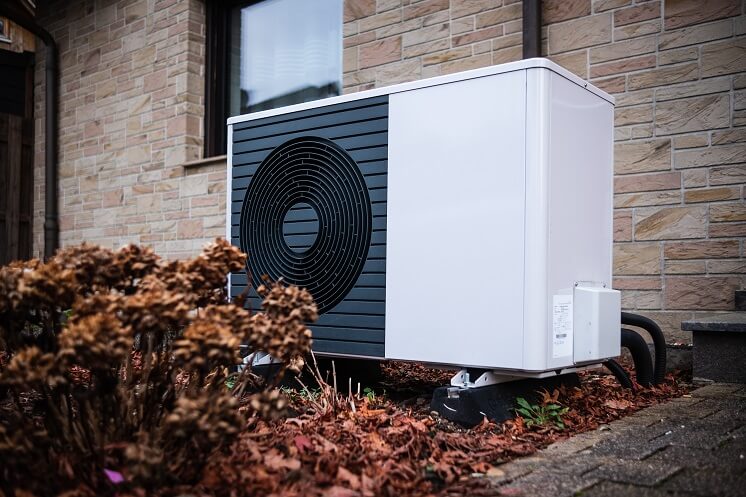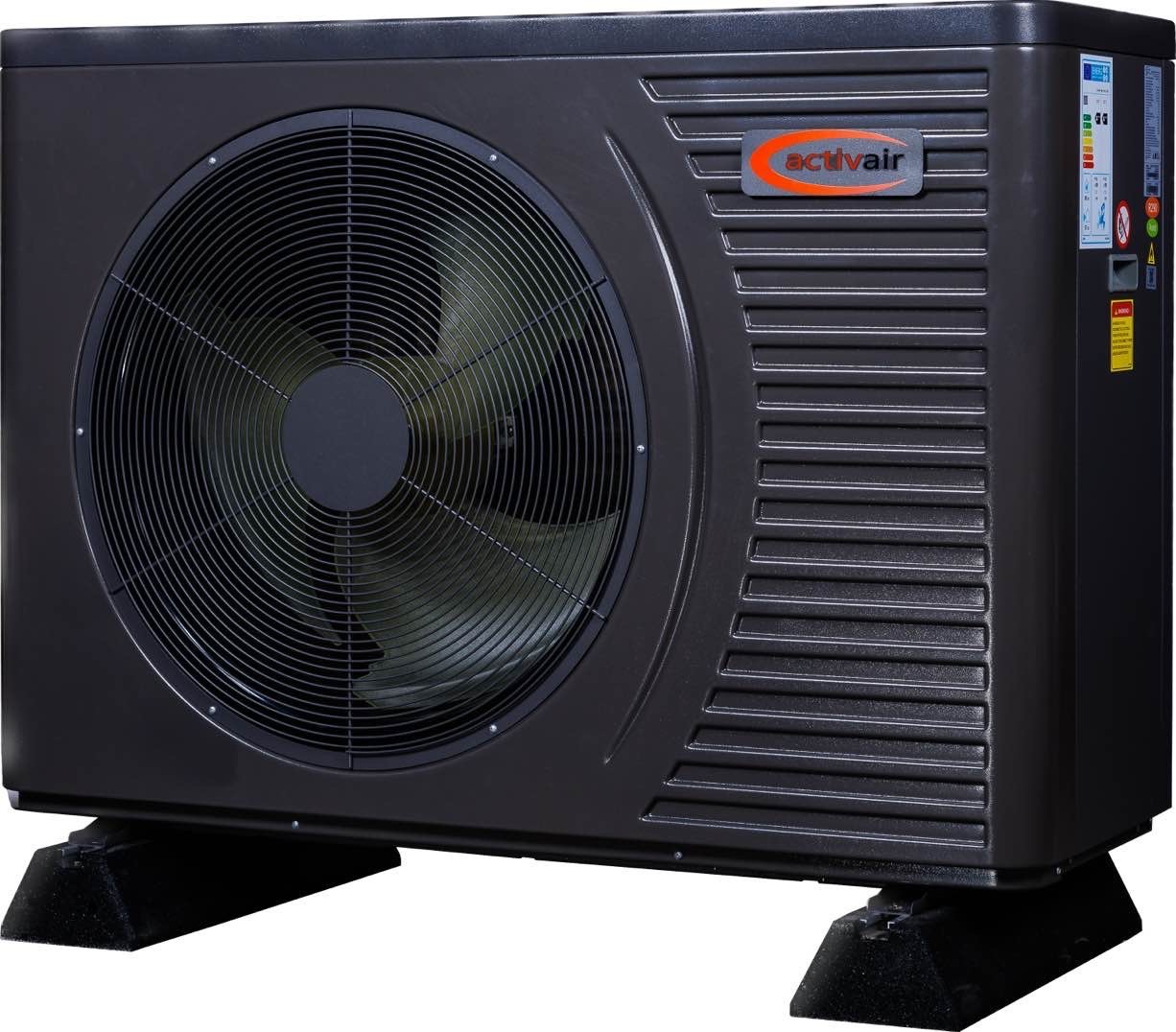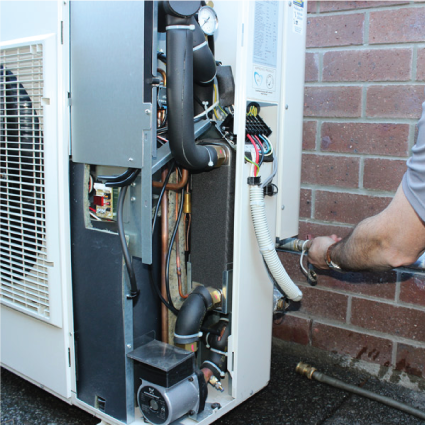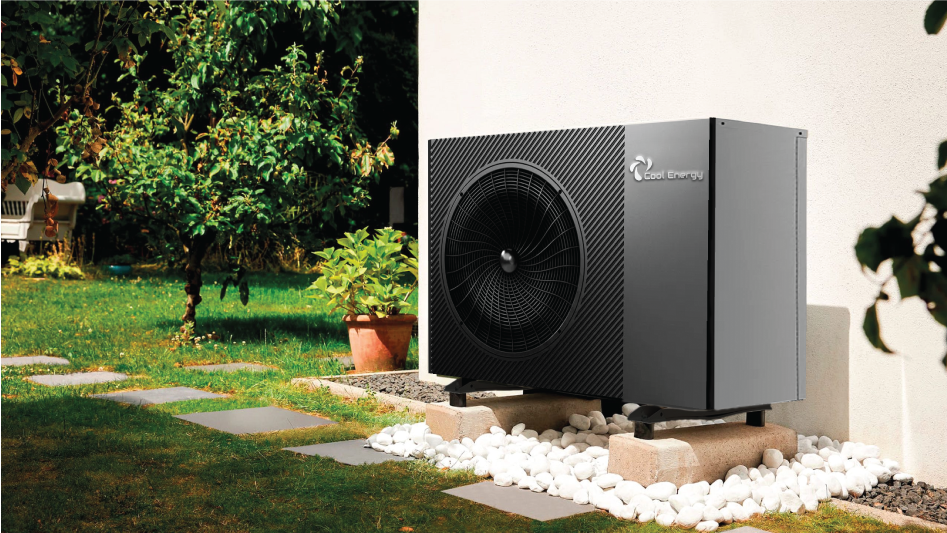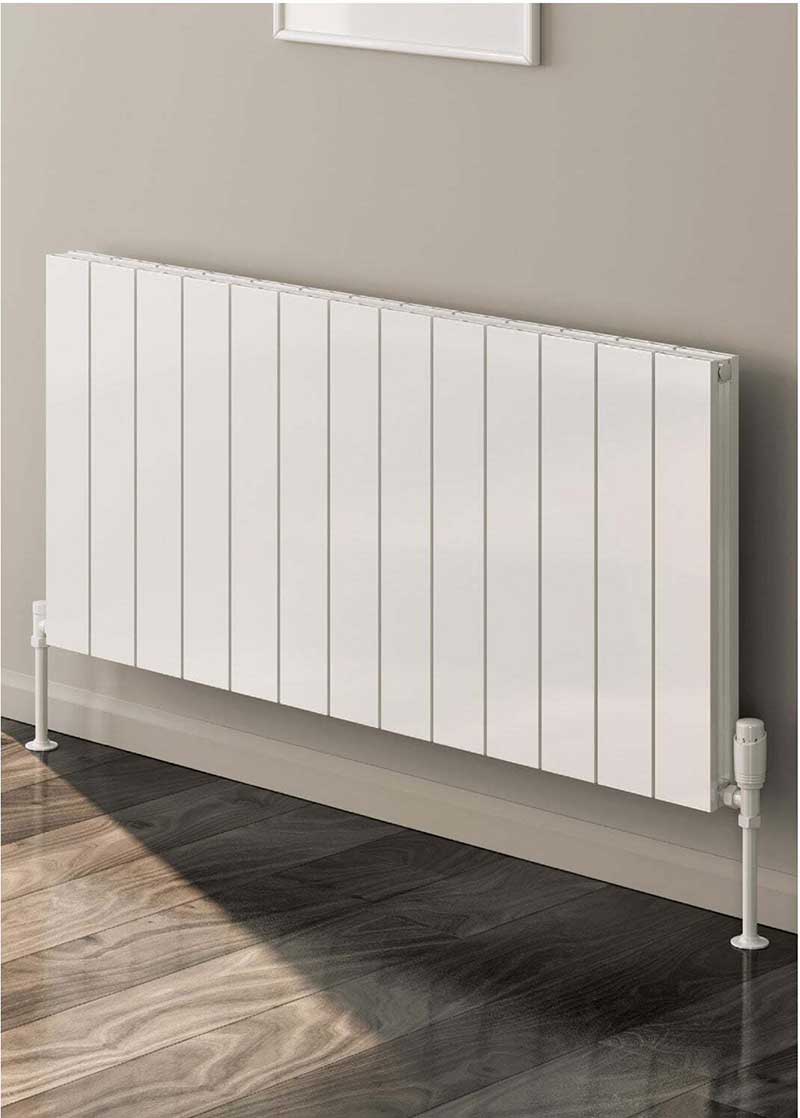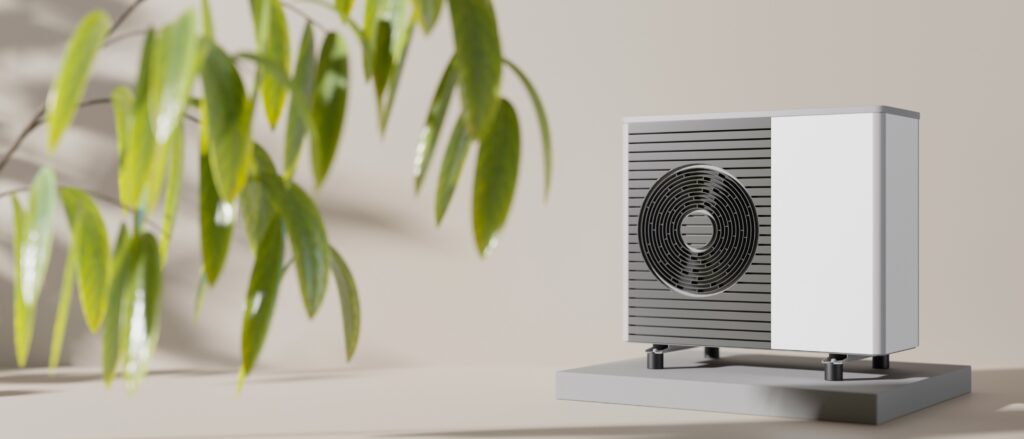- Badly calibrated thermostats are a common source of heat pump problems
- Obstructions on the outdoor unit can lead to an overworked heat pump
Considering that the average cost of heat pumps is approximately £10,000, it is preferable that they remain operational without encountering malfunctions. Regrettably, heat pumps are not impervious to issues. Nonetheless, most issues are relatively straightforward to rectify and do not necessitate the complete replacement of the heat pump.
This article will comprehensively address each problem, its potential causes, and the corresponding solutions, thereby instilling confidence in your ownership of a heat pump.
Do not currently possess a heat pump or considering a replacement? We can provide assistance. Simply complete our brief form, and we will connect you with our network of proficient heat pump installers, who will promptly furnish you with their most competitive prices.
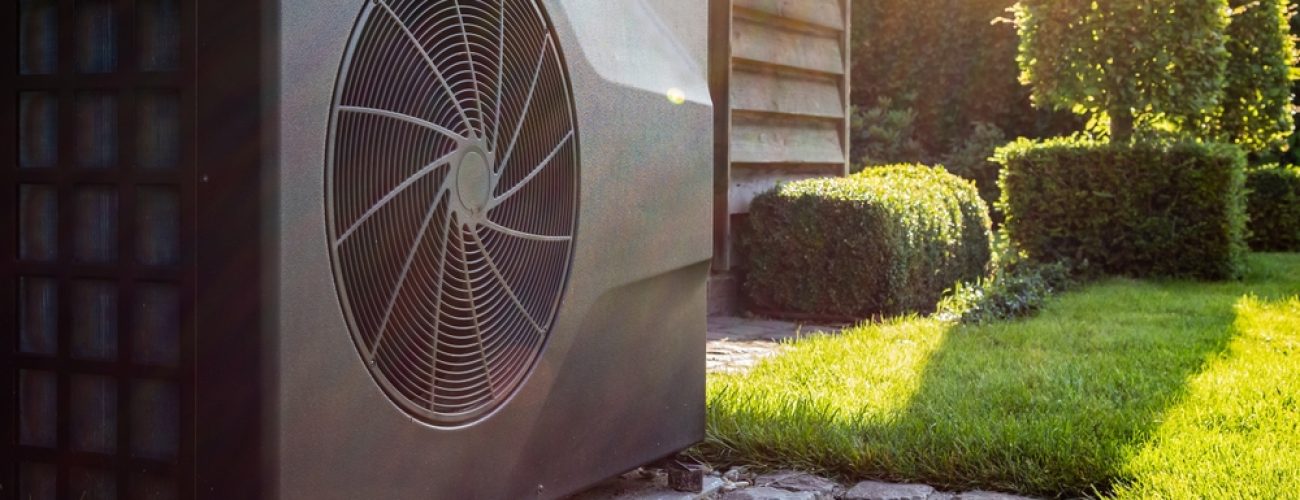
What's on this page?
The 7 problems with heat pumps
Below are seven prevalent issues that can arise with heat pumps, providing you with the insight to identify potential concerns. The most frequently encountered problems include:
- The heat pump fails to heat or activate
- Continuous operation of the heat pump
- Malfunction in the heat pump’s operational cycles
- Formation of ice on the heat pump’s outdoor unit
- Unusual odors emanating from the heat pump
- Generation of peculiar noises by the heat pump
- Leakage from the indoor units of the heat pump (applicable to air-to-air heat pumps)
Further elaboration on each problem and its corresponding solutions will be provided in the subsequent sections.
1. The heat pump isn’t heating or won’t turn on
If a heat pump fails to heat your home, the issue will likely become evident immediately. This could indicate several potential problems, including issues with the thermostat, radiator valves (or air ducts for air-to-air heat pumps), the electrical supply, the refrigerant, or the outdoor unit.
Faulty thermostat
When the heat pump does not provide heating, a malfunctioning thermostat could be the cause. Begin by ensuring that the thermostat is set to ‘heat’ and adjusted to the appropriate temperature.
If the thermostat is correctly set but fails to produce heat, it may be due to depleted batteries (if battery-operated) or a tripped circuit. In such cases, replace the batteries or inspect the circuit breaker.
If the issue persists, it is possible that the thermostat requires recalibration, necessitating the expertise of a professional to rectify the problem.
Closed radiator valves or obstructed air filters
For air source heat pumps, radiator issues may arise. Verify that the control valves (usually located on one side of the radiator) are open.
In the case of air-to-air heat pumps, inspect the air filters in the ducts. Dirty air filters could impede the flow of hot air into the home. If the filters appear soiled, attempt to clean them with water or consider replacement.
Loss of electrical supply to the heat pump
The absence of heating from the heat pump may be attributed to a loss of electrical power.
Initially, confirm that the switches for both the indoor and outdoor units are set to the ‘on’ position. Subsequently, inspect the circuit breaker for any tripped circuits.
If the switches and circuit breaker are functioning properly, a more complex electrical issue may be at play, necessitating the intervention of a technician.
Low or leaking refrigerant
Sufficient refrigerant is essential for the heat pump to transfer the gathered heat from the outdoors into your home.
If the heat pump fails to provide heating, it may be due to low refrigerant levels, potentially caused by a leak or another underlying issue. In such instances, it is advisable to engage a technician to address potential leaks and replenish the refrigerant.
Obstruction of the outdoor unit
In instances where an air source or air-to-air heat pump’s outdoor unit is hindered from extracting heat from the outside air, effective heating of the home may be impeded.
Inspect the outdoor unit for accumulations of debris, such as leaves, snow, or ice, and clear any obstructions. Additionally, ensure that no large objects or garden equipment are obstructing the outdoor unit.
If these measures do not resolve the issue, seeking assistance from a technician is recommended.
2. The heat pump is constantly running
Heat pumps are not typically intended to operate continuously in order to maintain a specific temperature. Several factors could contribute to this, including incorrect thermostat configurations, an improperly sized heat pump, refrigerant leakage, or extreme temperature conditions.
Thermostat set at excessively high temperature
If the heat pump is persistently running, it may be due to the thermostat being set at an excessively high temperature, causing the heat pump to struggle to meet the demand. Ideally, during winter, the thermostat should be set between 18ºC and 22ºC.
If your home still feels inadequately warm at this setting, it may be advisable to consider enhancing insulation, as a continuously running heat pump can lead to increased electricity expenses.
Inappropriately sized heat pump for your property
Another reason for the continuous operation of the heat pump could be its inadequate size for your home. A heat pump with insufficient capacity will exert excessive effort to heat a large residence. In such instances, it may be necessary to replace the undersized heat pump with a larger model.
Refrigerant leakage
Refrigerant is pivotal in transferring heat from the outdoor air or ground to the interior of your home. A leakage will diminish the refrigerant level in your heat pump, compelling it to work harder to meet the thermostat’s heat setting.
If this issue arises, engaging a technician to repair the leak and replenish the refrigerant is essential.
Extreme cold (or hot) outdoor temperatures
The continuous operation of your heat pump might simply be due to particularly cold weather, necessitating the heat pump to work extensively to extract heat from the air or ground.
Regrettably, little can be done if temperature extremes are causing your heat pump to operate continuously. However, mitigating the risk of this occurrence can be achieved by acquiring a properly sized heat pump for your home and ensuring adequate property insulation.
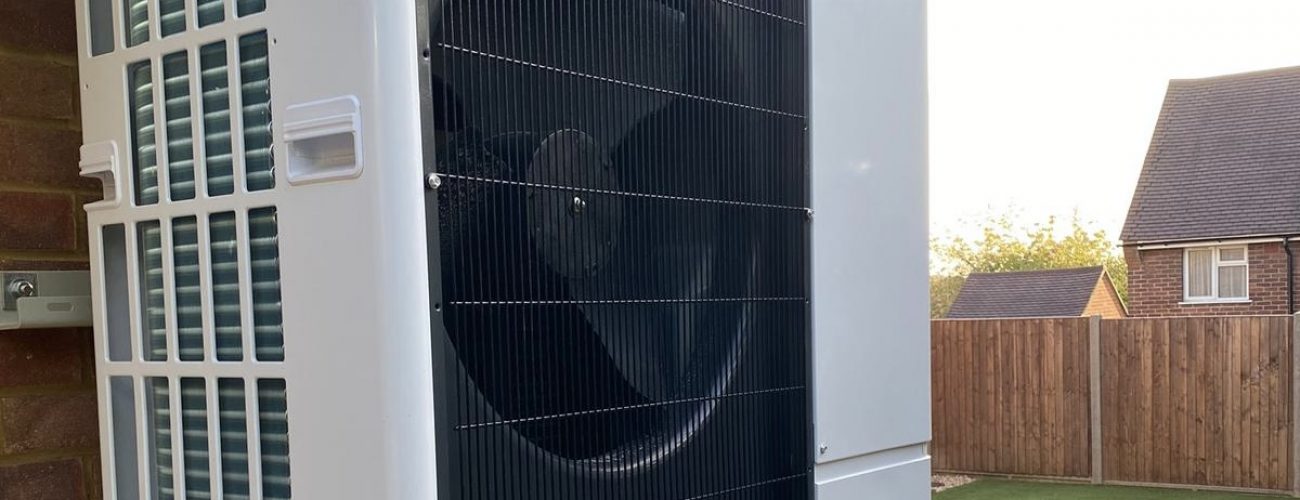
3. The heat pump isn’t going through its cycles correctly
If your heat pump fails to adhere to a preset heating schedule, it may indicate an overheating issue or a malfunctioning thermostat.
Overheating of the heat pump
When a heat pump overheats, it may cease operation, fail to complete a heating cycle, or neglect to activate for the subsequent cycle. Blocked airflow, often caused by a dirty filter, can lead to heat pump overheating.
To address this issue, inspect the unit to determine if the filter requires cleaning or replacement.
Thermostat malfunction
Similar to other heat pump issues, a malfunctioning thermostat could be the primary culprit. An incorrectly calibrated thermostat has the potential to prematurely conclude the heating cycle before achieving the desired temperature.
In such instances, it is necessary to engage a technician to recalibrate or replace the thermostat.

4. The heat pump’s outdoor unit is icing up
Heat pumps are engineered to operate effectively in cold temperatures, and it is common for them to become coated with ice or snow during the winter months.
However, if you observe persistent ice accumulation on and inside the outdoor unit of your heat pump, it may signal issues with the defrost function, outdoor fan, low refrigerant levels, or restricted airflow.
Defective defrost function
Most heat pumps are equipped with an automatic defrost function to prevent freezing inside the unit during winter. If the heat pump is freezing, it could indicate a malfunction with this function.
To address this issue, the expertise of a technician will be required.
Issues with the outdoor unit fan
The outdoor unit of an air source heat pump typically contains a fan that facilitates the extraction of outside air for conversion into heat for your home.
If the fan is malfunctioning or operating at a reduced speed, the refrigerant will absorb less heat, increasing the likelihood of interior freezing.
Any malfunctioning fans should be attended to by a professional.
Insufficient refrigerant levels
Low refrigerant can be the root cause of various heat pump problems, including icing of the outdoor unit.
Similar to a faulty fan, low refrigerant can impede the heat pump’s ability to generate adequate heat to prevent interior ice buildup in sub-zero temperatures.
In such cases, it is advisable to engage a technician to replenish the refrigerant.
Obstructed airflow to the unit
Accumulation of leaves or debris on the heat pump’s outdoor unit can obstruct airflow, resulting in reduced efficiency and increased ice formation.
This risk is further amplified when objects are positioned too close to the front of the heat pump, impeding airflow, such as parking a vehicle directly in front of the unit.
The solution in this scenario is straightforward: clear the debris or relocate the obstructing object away from the unit’s vicinity.
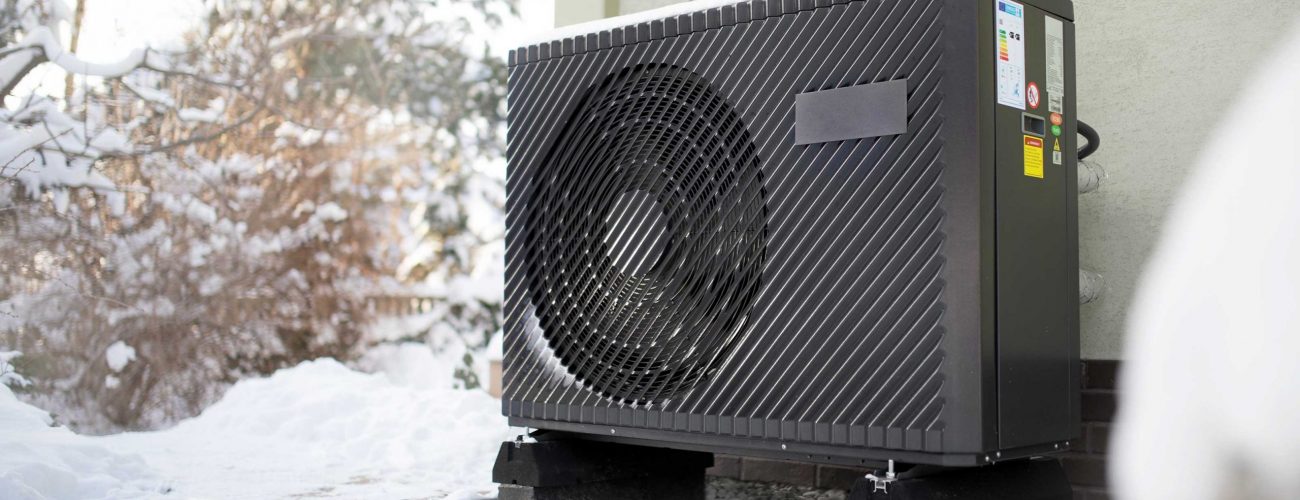
5. The heat pump has an odd smell
If you detect an unusual odor emanating from either the indoor or outdoor unit of your heat pump (or from the air ducts in the case of an air-to-air heat pump), it may indicate the presence of mold, a pest infestation, or faulty electrical wiring.
Presence of mold inside the unit
The emergence of a musty or earthy scent from the heat pump’s outdoor unit (or the air ducts in the case of an air-to-air heat pump) could signify the growth of mold.
A small amount of mold on the outdoor unit can typically be addressed by cleaning it with a damp cloth. However, extensive mold growth may necessitate professional cleaning or even unit replacement. The presence of mold in the air ducts of residences equipped with air-to-air heat pumps requires professional intervention, as its removal is challenging and it can pose health risks.
Deceased animals within the outdoor unit
If a putrid odor is emanating from the outdoor unit, it may indicate that a small animal has entered and perished inside.
In such a scenario, you can personally open the unit and remove the carcass. Alternatively, if you prefer, you can enlist the services of a professional to handle this task.
Significant electrical issues
The detection of a smoky or fishy odor from any component of your heat pump system may suggest overheating of the motor or a wiring problem.
In such instances, it is advisable to deactivate the heat pump using its circuit breaker switch and seek the expertise of a technician to inspect the internal components of the heat pump.
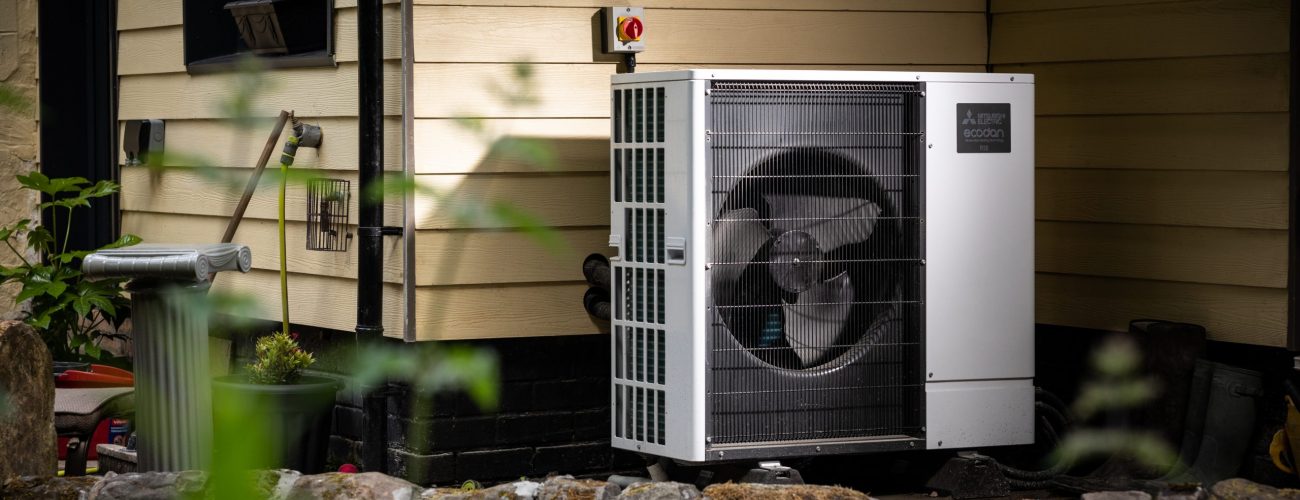
6. The heat pump is making strange noises
If the heat pump is producing unusual sounds or significantly more noise than usual, it may indicate the presence of a loose hardware component, motor issues, or the heat pump operating under excessive stress.
Rattling noise from the heat pump
When the outdoor heat pump unit emits a rattling noise, it could signify the presence of a loosely attached piece of hardware inside the unit or inadequate fastening of the unit.
Initially, ensure that the heat pump unit is securely fastened. If the rattling persists, it implies that something inside is loose, necessitating the intervention of a technician to rectify the issue.
Grinding or squeaking sound from the heat pump
The generation of a grinding or squeaking sound by the heat pump may indicate the wear and tear of the motor or coils within the unit.
In such instances, it is imperative to promptly deactivate the heat pump using the circuit breaker and seek the assistance of a technician. Motor issues can pose potential hazards, hence it is prudent to avoid taking any risks.
Elevated operational noise level of the heat pump
When the heat pump is operating louder than its usual noise level without emitting any unusual sounds, it suggests that the unit is functioning under heightened exertion.
This could be attributed to the prevailing weather conditions, such as extremely cold temperatures. However, it could also signal an inadequately sized heat pump for your residence.
If you suspect the latter scenario, it is advisable to engage a professional to assess both the heat pump and your residence.
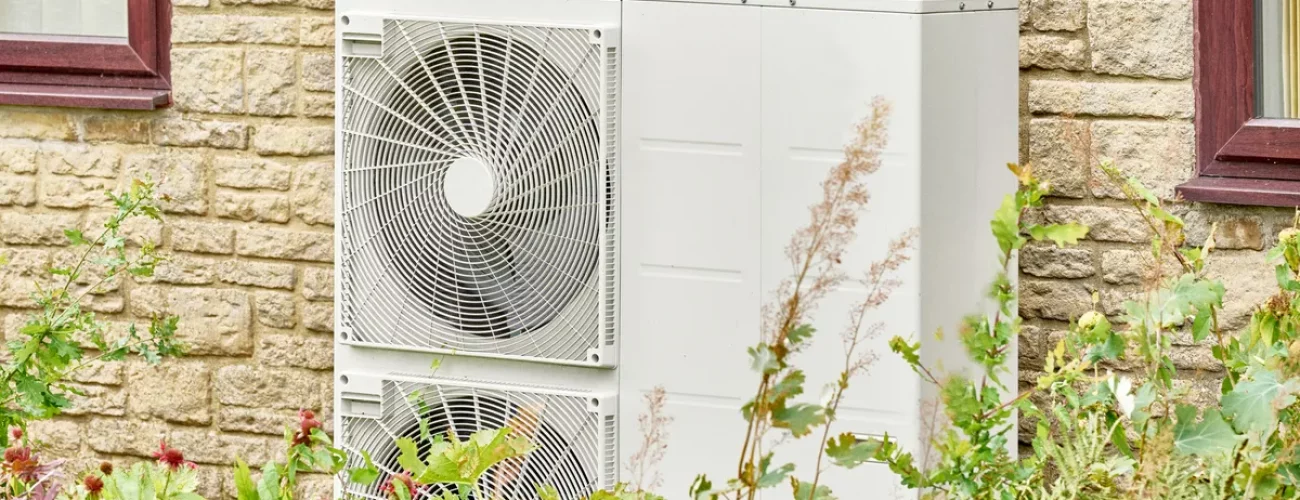
7. The heat pump’s indoor units are leaking (air-to-air heat pumps)
The outdoor unit of a heat pump may experience minor leakage, as condensation has the potential to accumulate inside the unit.
Nevertheless, in the case of an air-to-air heat pump, if you observe leakage from the indoor unit or pipe, it could suggest a refrigerant issue or a obstructed drain line.
Inadequate or leaking refrigerant
Insufficient or leaking refrigerant can lead to the formation of ice deep within the air-to-air heat pump‘s system. Subsequently, when the ice thaws, it may result in leakage.
Should you observe this occurrence, it is advisable to have the heat pump assessed by a professional.
Obstructed drain line
Drain lines in air-to-air heat pumps are specifically designed to expel water generated by condensation. The accumulation of debris in the drain can impede the flow of water, causing it to accumulate and lead to leakage in other areas of the system.
While attempting to clear the obstruction from the drain is an option, it is safer to have a technician inspect the unit.
Next Steps
Heat pumps represent remarkable equipment, and opting to use them for heating your home as opposed to a gas boiler can significantly reduce your carbon footprint.
Nonetheless, it would be inaccurate to claim that they are devoid of any flaws; issues can arise with any machinery, including heat pumps.
Fortunately, by familiarizing yourself with this article, you are now equipped with the knowledge of how to address potential heat pump problems.
If you have yet to acquire a heat pump and are interested in obtaining one, we can provide assistance. Simply complete our brief form with a few details, and we will connect you with experienced heat pump installers who will furnish you with quotations.
Find out how much a heat pump would cost you
Complete A Short Form – Receive Free Quotes – Compare & Save
Find out how much a heat pump would cost you
Complete A Short Form – Receive Free Quotes – Compare & Save










